Twenty six students of the School of Chemistry and Chemical Engineering, Chongqing University was on an academic visit to Japan from July 14 to 21, 2019 as led by Hu Baoshan, deputy dean of the School, and Li Cunpu, assistant to the dean. The visit lasted for 8 days and has been brought to a successful close. This visit to Japan was rich in content and included four parts according to the knowledge level and characteristics of undergraduates and postgraduate students. The four parts were respectively professional course teaching and lecturing, scientific research lab experience, visit to well-known enterprises and urban cultural experience. The delegation successively arrived at Waseda University, the University of Tokyo, University of Tsukuba and Kitasato University, where they attended classes and participated in the scientific research lab experience. After that, the delegation paid a visit to and FANCL and NITTO DENKO Corporation and experienced their new products. This visit has been targeted at “strengthening moral education and cultivation” and aimed to widen the international horizon of students of the School, improve their comprehensive quality, perfect the international cooperation and exchange mechanism of the School with well-known foreign universities, and enhance reputation of Chongqing University and the School.
On the morning of July 15, Chinese students of Waseda University introduced CQU students to the history of Waseda University and the life story of its founders with enthusiasm, and showed the students around the campus of Waseda University. On the afternoon of July 15, professors from Kitasato University gave a brief introduction to the latest research results of the biochemistry, as well as the application of the combined utilization of gaseous phase, liquid phase and mass spectrum in exploration of the origin of life. Students widened their horizon, and gained better understanding of instrument utilization and the inter-discipline of chemistry and biology.
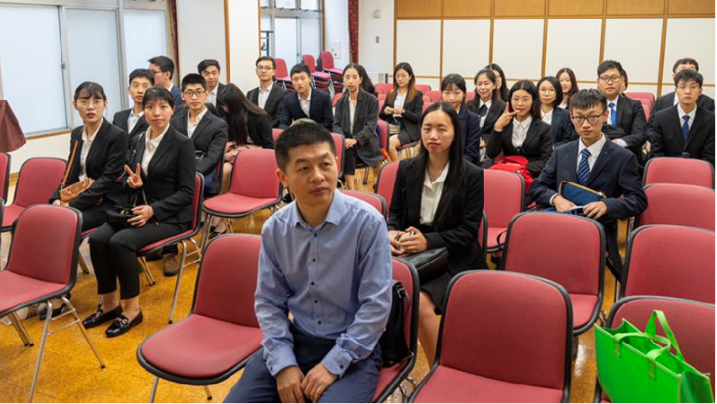
On the morning of July 16 and 18, Professor Koyama from University of Tokyo gave a systematic introduction to biological macromolecular polymers and environmental chemistry, and resented the depolymerization mechanism of microtubes in the organisms he had been studying. Professor Koyama also explained the scientific research path from raise of scientific questions to identification of solutions and then to recognition of the scientific questions. Students learned the preciseness and rationality of scientific researchers. At the same time, the postgraduates participated in the “lab experience” held at the Environmental Engineering Lab of the University of Tsukuba. They visited, watched and operated the instrument and equipment of the Nihon University, and exchanged ideas with local postgraduates. They gained a further understanding of concepts like good lab practice and safe operation, and the idea of “preciseness and innovation” has taken root in their mind.
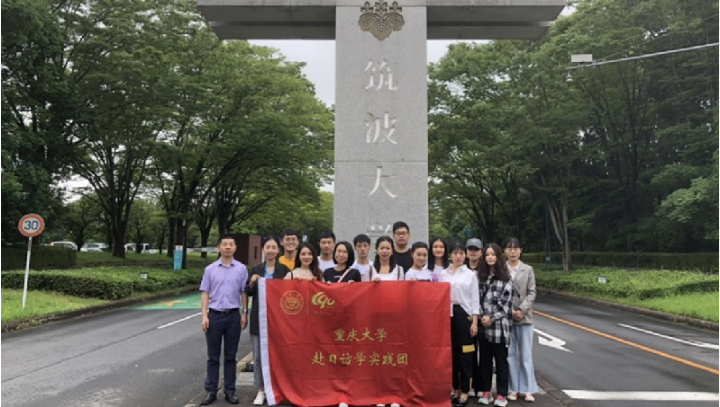
On the morning of July 17, Professor Zhang introduced to the students the development history of the life and environmental science at the University of Tsukuba. Students had discussion over the environmental protection and garbage classification practiced in Japan, and the urgency of garbage classification in China. Through the discussion, students understood the importance of environmental protection, and learned about the impact of science and technology on different aspects of our life. After that, Professor Zhang gave a systematic introduction to the scientific research subsidizing system of Japan and made a comparison with the subsidizing system of China. This helped to strengthen the students’ awareness of mission and responsibility for development of China through science development and education.
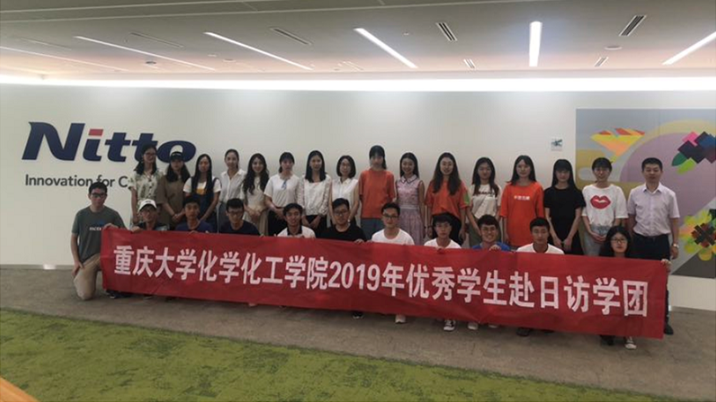
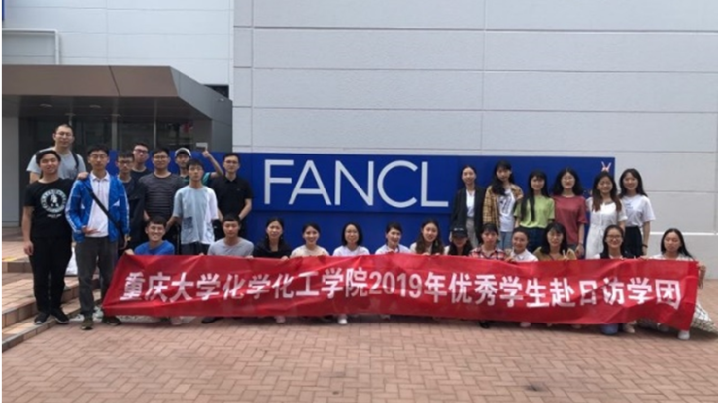
On July 17 and on the afternoon of July 18, the delegation arrived at Chiba Factory of FANCL and NITTO DENKO Corporation of Japan. Workers of the two companies introduced to students their development history and corporate culture and showed them around the production workshops and invited them to experience the products. Students learned that trivial things in our daily life matter as well when it comes to science and technology.
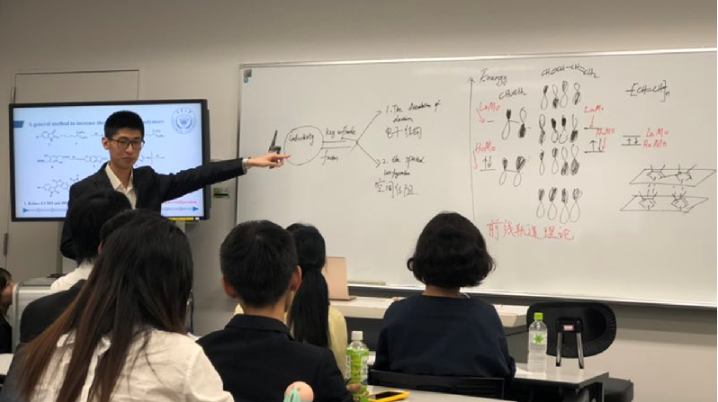
On the morning of July 19, teachers of the Career Service Center of Waseda University explained the concept of sustainable development of Japan, and gave a view of the measures of and economic support given to construction of sustainable cities. On the afternoon of July 19, students made presentations in English in groups. Professor Liu Jiang and doctors in related areas of Waseda University commented on the presentations and presented the students with course-completion certificates, and awarded the winning group with a certificate of recognition.
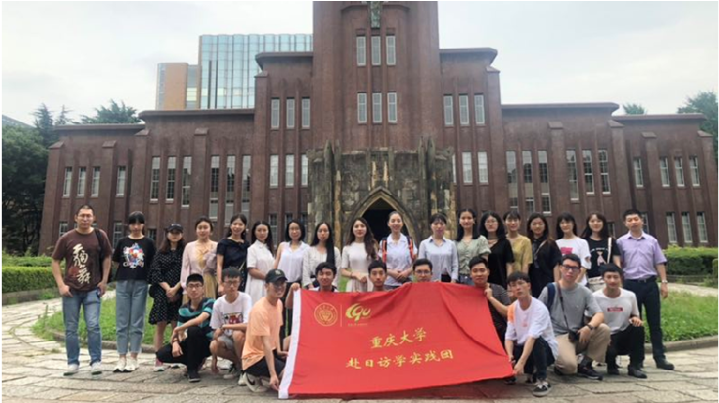
During the 8-day academic exchange, students gained cultural knowledge and understanding of frontier advancement of professional fields. Furthermore, they experienced the different education modes and the spiritual outlook of young people in different regions. In the visit to the enterprises, they learned about the social improvement driven by science and technology, and felt the fusion of different culture and thoughts and difference between them. Students of the delegation were touched deeply and said that they should learn the preciseness and realism from scientific research workers and put them into practice in future study and scientific research. In recent years, in order to implement the First-rate Construction Scheme of Chongqing University and foster the double-first-rate construction of Chongqing University, the School of Chemistry and Chemical Engineering has formulated and has been implementing a number of construction schemes for faculty building, talent cultivation, scientific research, base and platform construction and international research and cooperation, with support and guide of Chongqing University and related departments and offices. Specifically, overseas exchange program for outstanding students, since its establishment in 2018, has been held successfully for 2 sessions. The program widened students’ international horizon, consolidated their belief in talent cultivation through scholarly research, and enhanced their understanding of the connotation of “academic research, talent cultivation, country enlightening and society rejuvenation”. In addition, their sense of national price and responsibility was strengthened and diversified cultural exchange promoted, resulting in richer and more extensive modes and paths of national talents of the School and better reputation of Chongqing University and the School.
